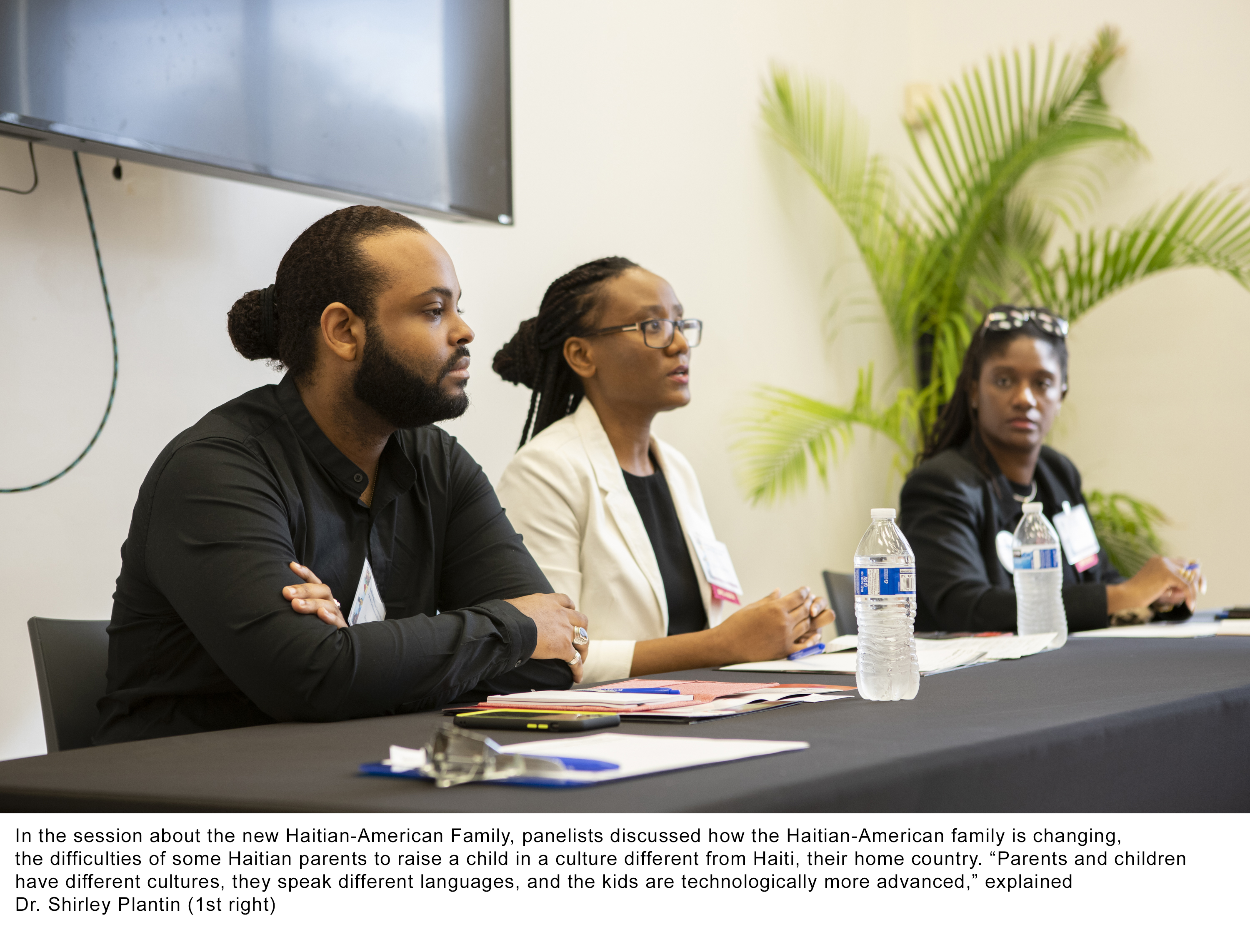By Jonel Juste
“Nou la Pi Red (We’re here to stay)” was the rallying cry of the Haitian-American Community Agenda Conference 2020 that took place on Saturday Feb. 15 at the Little Haiti Cultural Center in Miami. The goal of this conference was “setting priorities for the advancement of South Florida’s Haitian American Community.”
Community members, community-based organizations, and business and faith leaders attended the third Haitian Community Agenda Conference on Saturday, February 15, 2020. Among the participants were professionals from diverse horizons, community leaders, elected officials, and former Haitian Prime Minister Michele Pierre-Louis.
Through various sessions, important topics were presented and debated, such as New Haitian-American Family, Cultural Preservation, the Economy of the Future, Threats and Opportunities, Faith-Based Engagement, Culture and Identity, Diaspora Engagement, and Reimagining Haiti.
In the session about the new Haitian-American Family, panelists discussed how the Haitian-American family is changing, the difficulties of some Haitian parents to raise a child in a culture different from Haiti, their home country. “We’re in trouble,” said Dr. Shirley Plantin who underlined the multiple gaps between Haitian parents and their American kids: cultural, communicational, and technological. “Parents and children have different cultures, they speak different languages, and the kids are technologically more advanced,” explained Dr. Plantin, adding that sometimes the roles are reversed in the home. “Since the children adapt quicker to the American culture, they tend to play the parent’s role,” she added.
On the same topic, Mental Health Counselor Danna Demezier stated that, “Haitian Parents don’t understand the system and can easily become victims of some organizations like DCF that can take away their kids because of the language barrier.” Mrs. Demezier added that Haitian parents are also reluctant to see counselors unless ordered by a court. On the other hand, she indicated that American society must also be educated about Haitian culture so they don’t mistake some behaviors for rudeness (for instance, the fact that Haitian children don’t look grown-ups in the eye).
After this first session on the family came “Faith-based engagement,” which was focused on the role of our faith-based institutions in nurturing a greater sense of civic engagement in the Haitian community. “The Haitian Church is not actively involved in civic engagement and social projects,” opined Dr. Celucien Joseph, one of the panelists. “The mindset of Haitian ministers, the theology they were trained in, is that they have to wait for the dominant culture to do something for them.”
Family and faith were not the only topics discussed at the different sessions; there were also talks about the economy. In “The Economy of the Future,” hosted by Jeff Lozama, the types of business conducted in the community from the first generation of Haitian immigrants (money transfer, call center) to today’s generation (nursing school etc) was debated. The lack of training among people who want to do business here and the fact most don’t know about apprenticeship opportunities that are available to them was also highlighted.
In the topic “Threat and Opportunities,” Haitian presence at the local and federal levels of government, and policies that affect the community was analyzed. Panelists also looked at critical issues such as climate change and gentrification. This latest point came at just the right time and place since the conference was being held in Little Haiti, the historic Haitian neighborhood in Miami that is now threatened by gentrification. According to Nancy Metayer, environmentalist and community advocate, the reason why Little Haiti is coveted by big developers is because of sea level rise.
One of the most interesting topics debated at the conference was one titled “Cultural Identity.” According to NSU Professor Charlene Desir, Haitians were the first to start the Black Lives Matter movement. “Being Black is not a color, it’s a consciousness,” she said. The sub-topic of colorism was debated as well. “Everything is seen better in relation to whiteness, whether it’s color or religion; Europeanism is not correct,” stated Broward College Professor Rudy Jean Bart. Political and Cultural Analyst Gerard Metelus added, “Although we consider ourselves equal to the white person, we have internalized the value of the white colonizer. Everything that is white is good, we think. Decolonization never took place in our mind.” Gerard Metelus also shared some remarks about the Haitian community. “We leave our neighborhood once we’re better off and go to places where we are proud to be the only black person. Doing so, we lose our power. We use the English language to show our difference from Creole speakers.”
The last topic discussed was the Diaspora Engagement and Reimagining Haiti presented by panelists Michele Pierre-Louis, Alix Cantave, Johnny Celestin, and Emmanuella Douyon. Mrs. Pierre-Louis painted a grim picture of Haiti’s situation and the role of the United States in the country’s debacle. “Deregulation opened our ports to foreign goods and that killed production in rural and urban areas,” said the former Haitian Prime Minister. “Haiti is the second country importing rice from the U.S.,” she added. This situation causes inflation and to fight this, Mrs. Pierre Louis suggested that Haiti produce more. Finally, Petrochallenger Emmanuela Douyon invited the diaspora to hold the Haitian government accountable. “You send billions to Haiti every year, so you have that right.”
The Haitian-American Community Agenda Conference is convened every few years by a coalition of Haitian-American organizations in the South Florida Haitian-American Community. Gepsie Mettelus (Sant La), one of the organizers of the event, promised to share the resolutions of the 2020 conference with the community.


